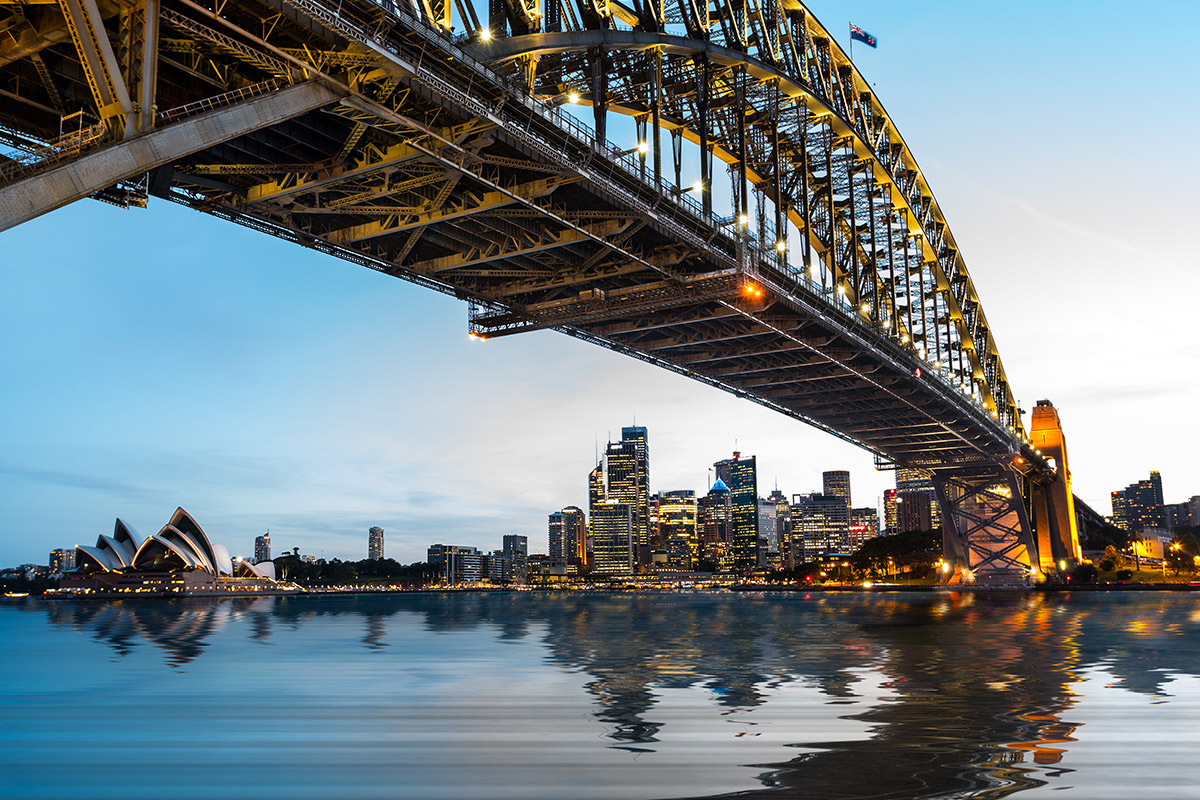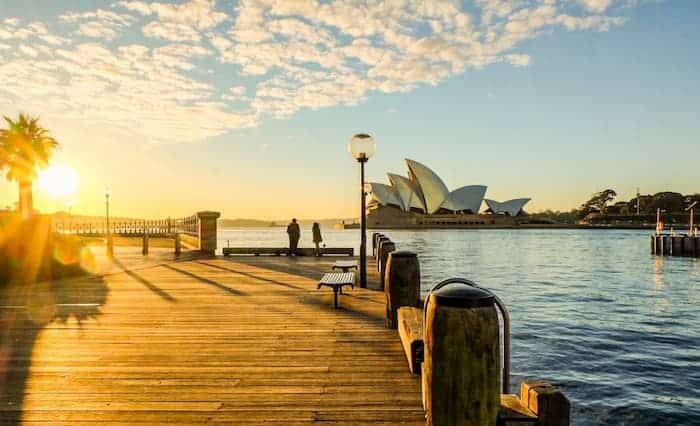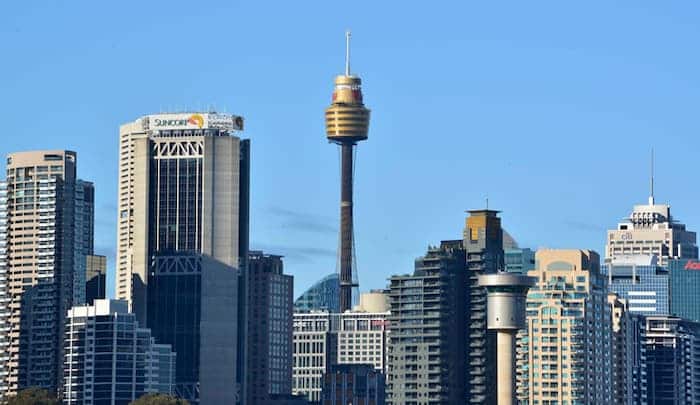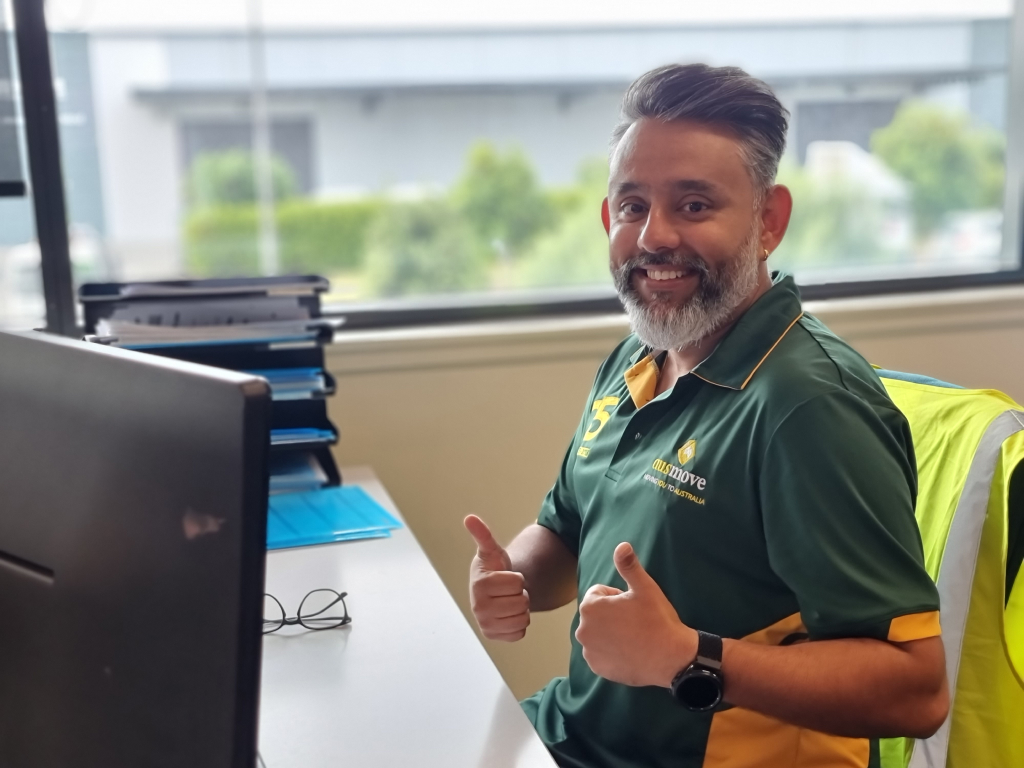Sydney


Sydney
It’s time for a move, and you’re headed to Sydney for this new chapter. As a Kiwi moving to Australia, there’s a lot of similarities in terms of culture and life, but then, some key differences too. This guide will help you get set up with your new life and start working in Sydney, known for its cosmopolitan attitude, multicultural inhabitants, blissful beaches and food scene.
Sydney has over 100 beaches, a vibrant shopping and restaurant and bar scene, and has a moderate climate. This makes it a perfect place to live all year round, especially for Kiwis looking for warmer weather. It has a laid back yet happening culture befitting its big city status, enticing for any New Zealander who is looking for a faster pace of life. Moving to Sydney is comparatively easy and with a small chance of culture shock, since both Australia and New Zealand have a ton of similarities. With the ability to get the Special Condition Visa on arrival, you can get started living and working in Sydney with ease. No wonder then, that there are over half a million Kiwis settled across the ditch!
A New Zealand citizen moving to Australia has one big advantage – you are entitled to get the SCV (Special Category Visa) on arrival. Thanks to the reciprocity and harmonious ties shared by the two countries, this temporary but indefinite visa means that a Kiwi can live, work, study, and even retire in Australia, for as long as desired.
The SCV visa also gives New Zealanders many benefits that are granted to Australian citizens. However, an important point to note is that the SCV is, at the end of the day, a temporary and unprotected category visa. It will not give you permanent residency, even though it means you can pretty much arrive in Sydney and hit the ground running to get started on your new life.
The recommended route for any Kiwi with special skills or skill set that fall in the category of highly desirable and not easy to find in Australia is to apply for the skilled worker/skilled independent worker visa either before you leave NZ or transition from the SCV. This makes your application for permanent residency go faster as well. You can register with the Aussie Skill Select Database, here.

Feel like a taste of Australia’s biggest city? Moving to Sydney is the dream for many Kiwis, who want a world of job opportunities, amazing weather and internationally famous beaches all at their doorstep.
Like in New Zealand or almost anywhere in the world today, having a bank account is essential for when you start working. You want that first paycheck to hit your account on time. With so many banking institutions now offering customers the ability to open an account online, you can actually have this essential chore out of the way even before you leave NZ, and the process is as simple as sharing the pertinent details including arrival date and employment information. Take the time to do some research on the various banks (including familiar names like ANZ, Commonwealth, Westpac), since some still will want you to fill out paperwork and mail it in rather than having the entire process happen online.
Then there is the time frame in which you can open a bank, before arriving in Sydney – this can vary as widely as 12 months to just a few weeks. Also keep in mind that the banks are most often not the best option for conversion of your NZ dollars to AU dollars so you may want to use a currency conversion specialist (like OFX or TorFX) for this if you are planning on moving large sums. Banks tend to give worse rates and charge you a commission, whereas currency specialists offer zero commission, good rates and all online money conversion. And as a rule, it is never wise to take large amounts of cash. This is where having a bank account already opened which you can use to do online transfers.
The other have to before you can begin working in Sydney, is to apply for and receive an Australia Tax File Number (or TFN) from the Australian Tax Office (ATO). Much like the American social security number or the Kiwi IRD number, this is essential for you to have before you can be employed. While not a legal mandate, if you don’t have the TFN you will find yourself being taxed at a very high percentage, so it envourages you to get it, and it is a once in a lifetime process. For an idea of how much tax you could end up paying on your salary, you can check here. And unlike a bank account, the TFN is something you can only apply for and obtain after arriving in Sydney. Note that the fiscal year in Australia is July 1st to June 30th and this applies to personal income taxes as well.
Health insurance is something you should have once you move to Sydney, just as you probably did back home in New Zealand. The public healthcare schemes funded by the Australian Government are Medicare, the Pharmaceutical Benefits Scheme (PBS) and the 30% Private Health Insurance Rebate. It is highly advisable to also get private health care coverage by investing in a private health insurance policy.
For the public Medicare scheme, you should go to a local Medicare office or call them, and you can do this a week after you arrive in Australia. Once you are enrolled for Medicare, you will receive a Medicare Card. To figure out your eligibility and the process as a NZ citizen in Australia, go here to the AU Human Services website page. Note that much like in other countries, Medicare doesn’t cover every possibility and as a newly arrived Kiwi in Sydney, you really should also get yourself private healthcare, with general and hospital treatment coverage.
You will be relieved to hear that you don’t have to get an Australian driver’s license as soon as you move to Sydney. The rule is that you can drive on your NZ license for three months, which gives you enough time to get settled before you undertake the process of converting your driver’s license to an Australian one. As someone who is establishing a home in Sydney, you will need to get a NSW driver’s license, and since the road rules differ a bit from state to state, not to mention as someone moving from another country, it is best to brush up on the road rules.
Sydney is the hub for the financial industry in Australia, making it the ideal city if you are in the BFSI sector. The Australian Securities Index, Reserve Bank and most of the leading foreign banks are headquartered in Sydney, as are the majority of domestic ones. The central business district is where you will be if you are in financial services and banking, as that’s where such organizations are located.
Tech is also a burgeoning industry in Sydney, with well over half of all Aussie start-ups located in Sydney. If you are going to be with a tech company, you will likely find yourself working in Martin Place, which has now gotten then nickname of Silicon Place, thanks to Facebook, LinkedIn and Apple setting up shop in the area. In general, the areas for business in Sydney are Sydney Central Business District, Pyrmont-Ultimo, East Sydney, Redfern-Waterloo, Sydney University, and the Royal Prince Alfred Hospital.
Two other industries that have multiple openings in Sydney are hospitality and the creative arts including content, writing, publishing, gaming development, architecture, broadcasting, performing arts, visual communications, advertising and design. The neighbourhoods of Surry Hill and Darlinghurst are the strongholds for the creative industry, and with close to 10% of the working populace in Sydney employed in work that counts as creative, it is the fastest growing sector, not to mention being second in terms of employment.
The hospitality industry is definitely one with myriad opportunities, what with over 13 million visitors (of which more than 3.5 million are international) to Sydney each year. So there are tons of hotels, restaurants, bars, and nightclubs always looking for staff.

Sydney is on the expensive side, and if you are arriving without a job, or family and friends to stay with, it makes sense to live economically until you find your feet. Hostels are a good option for single people, renting a room in an apartment is a good idea for singles or young couples, and families can look into AirBnB and local alternatives. This way you can save money and also not be tied down to a specific area until such time as you have figured out the city, where you may be wanting to live relative to your commute to work, and if you have kids, then having had the time to look into schools and neighbourhoods that suit your family – and budget.
The neighbourhoods that have high rental prices in Sydney include Tamarama, Darling Point and Elizabeth Bay – basically the harbour and surrounding areas are the most expensive to live in. Western Sydney is likely to be the most affordable in terms of renting. The internet is the best way to go about finding a place to rent, and do be aware that good places get snapped up fast. You can start your search here. Check out the tenancy laws as well, as they differ from state to state and are not quite as simple as in NZ, albeit similar in nature. For Sydney, the tenancy laws will be for the state of New South Wales.
Another factor to consider of course, is whether you plan to rent long term or will be looking to buy property. If you want to purchase rather than rent long term, this a good time to do so since Sydney’s housing market has dropped in the past couple of years. However, it is predicted to pick up again now with lowered interest rates and the Reserve Bank of Australia recently announcing a cut in cash rates – so best look sharp and get on the homeowner bandwagon if you’re moving to Sydney from NZ. The cut in interest rates does mean you will get to save on repayments.
Another consideration of importance is whether you will be driving (which is what many Sydney working people do, making for some high traffic) or using public transportation to get around. The public transportation system in Sydney is is quite vast, and include buses, ferries, trains and light rail options. And then there’s the newly opened Sydney Metro, a rapid transit service. Currently there is a single line but with construction underway, there will soon be even more choice and ease in getting around Sydney via public transport.
One of the first things you should do once in Sydney is get yourself an Opal card (it’s free!), which gives you access to all the public transport, and can be easily topped up at train stations and convenience stores all around town.
Some tips to settle in: use Uber over other taxi services; check out the free Sydney walking tours available and join them, it will help you get the lay of the land and figure out which areas you may want to live or party in and explore.
Goes without saying, the areas most popular with tourists will be the most expensive for food and drink (not to mention the most crowded), so as a soon to be local, once you have taken in the sights, these are not the best spaces to hang out. Rather, befriend locals, join an expat group (Sydney has a large and very active expat network) and find out how to live like a local.
Enjoy your new home. Sydney is a beautiful city with loads of opportunities for Kiwis.

Ausmove understand and appreciate the trust you are placing in us to relocate your much-loved possessions to another country. We know you are relying on our experience and reputation. This is what drives us to ensure we either meet or exceed your expectations. Our commitment extends beyond our shores, to our Queensland service partners. We can be trusted to find the most cost-effective options, assist with documentation, and make sure there are no hidden costs or nasty surprises waiting for you upon arrival in Australia. At Ausmove we celebrate diversity and foster an environment where everyone feels valued. If you are only sending a few items, you will receive the same level of service and consideration as other customers with full 40-foot containers.